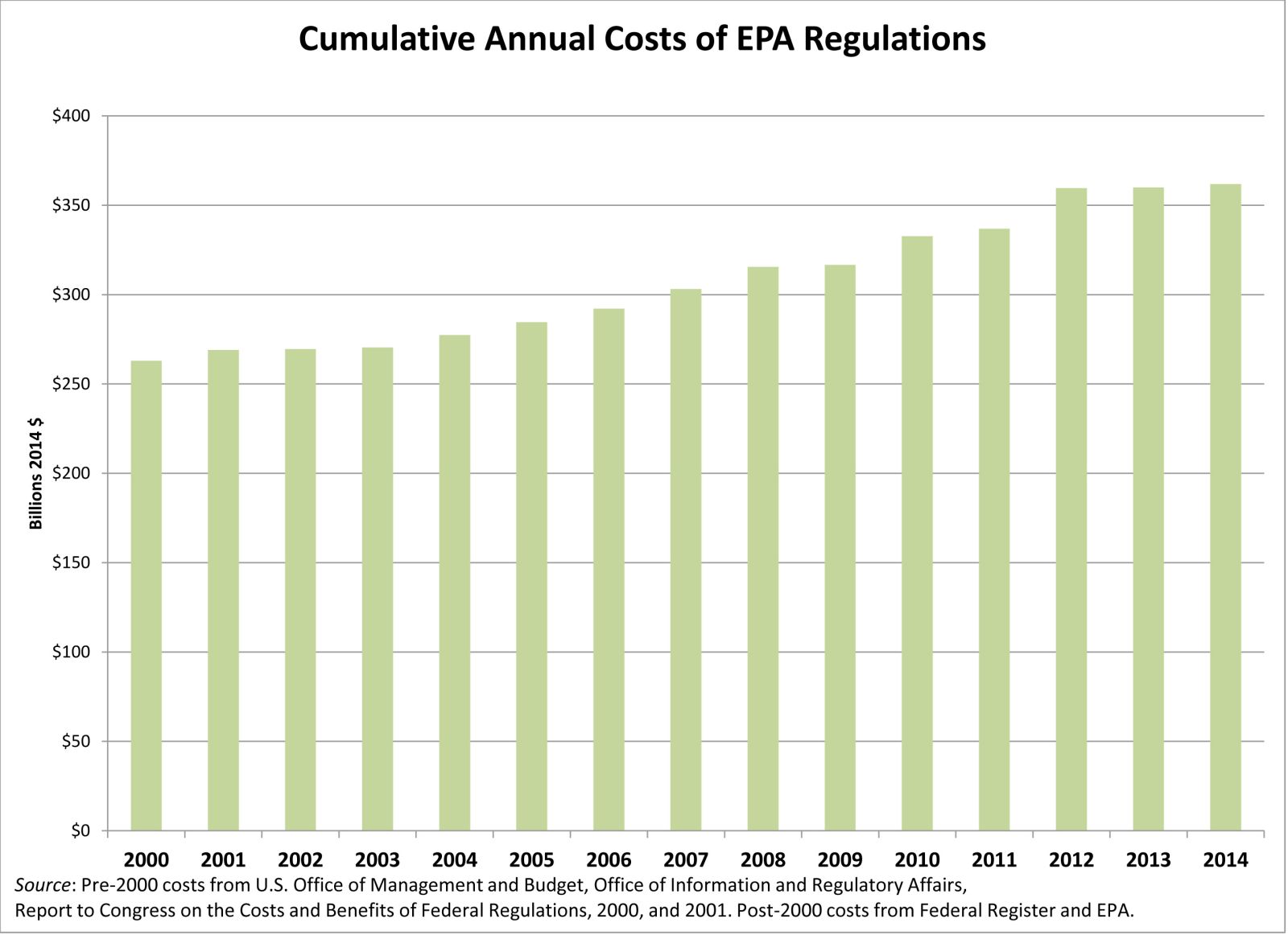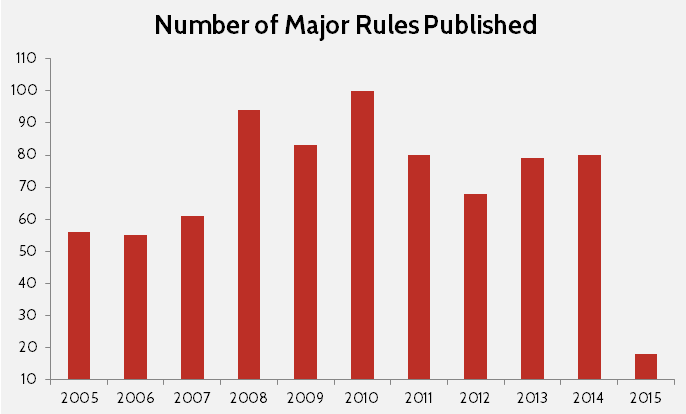Regulatory Reform Was Off the GOP Debate Radar
KEY TAKEAWAY
- Federal agencies make more laws than Congress.
- We can get our rules right with the Regulatory Accountability Act.
The second GOP Presidential debate covered a lot of issues, and while not every one can be covered–not even in a three-hour debate–it was disappointing that regulations only received a handful of mentions and no discussion.
(It wasn’t any better in the first debate.)
That was a missed opportunity, since federal regulations and how they’re developed have created a costly albatross around our economy’s neck.
Take EPA. The regulatory costs from this one agency have been steadily climbing and reached $360 billion per year in 2014.

And EPA isn’t letting up. With the Waters of the U.S. rule, it has expanded its regulatory jurisdiction to nearly every bit of land the agency argues is “near” to water. It has unleashed new carbon regulations that will drive up electricity costs and threatens power reliability. And the agency is about to drop stricter ozone standards–the costliest regulation in U.S. history–that will squelch economic development in many parts of the country.
That’s just one federal agency. I could mention regulations generated by Dodd-Frank and the Affordable Care Act. I could spill pixels on regulations coming out of the Consumer Financial Protection Bureau, the FCC, OSHA, the SEC, the Interior Department, the Energy Department, and on and on.

Source: American Action Forum.
This summer, the Obama administration hit an ominous milestone, finalizing its 500th “major regulation,” ones that affect the economy by $100 million or more. Sam Batkins at the American Action Forum compares this regulatory output to that of the previous administration:
In eight years in office, President Bush finalized 496 major regulations. In less than six and a half years, President Obama’s regulators managed to surpass that total, issuing their 500th major regulation this week. The combined cost of major regulations from 2009 to present is a whopping $625 billion.
Even if they have the best of intentions, do regulators know how their regulations fit in a complex world? Do they understand the ins and outs of how businesses deal with the rules already on the books, let alone how new ones will interact?
It’s gotten so bad, that according to law professor Jonathan Turley, federal agencies make more laws than Congress: “One study found that in 2007, Congress enacted 138 public laws, while federal agencies finalized 2,926 rules, including 61 major regulations.” Our Founding Fathers who crafted our constitution would be disturbed with the rise of this unaccountable Regulatory State.
Along with impeding productive economic activity, our deteriorating regulatory environment is hurting something Americans hold most dear, their liberty. The U.S. has fallen down to 16th on the Frasier Institute’s economic freedom list and down to 20th on the Human Freedom Index. The growing Regulatory State is a big factor.
It’s not a question of having no regulations; it’s about getting our rules right. To do this, federal agencies should use good data, employ thoughtful analysis, and give the public adequate time to offer useful input.
Senators running for president had no excuse for not bringing up regulatory reform, since there’s a bipartisan bill in the Senate they can support that will modernize the regulatory process by making it more accountable to the public and more transparent.
The Regulatory Accountability Act would require agencies proposing “high-impact” rules (costing over $1 billion) to base them on the best available evidence, and any data the agency uses to craft the rule would have to be made public (none of this secret science business). It will make agencies consider lower cost alternatives to achieving its goals, and it would require agencies to hold a public hearing if requested.
“The Act simply requires additional process to ensure a better rulemaking product; it does not compel any particular rulemaking outcome,” Bill Kovacs, U.S. Chamber senior vice president for Environment, Technology & Regulatory Affairs, told lawmakers in June.
The House passed the bill in January and is waiting for Senate action. Almost 400 business groups signed a letter to Senators asking them to support the bill.
It’s not the sexiest topic, but bringing our regulatory process into the 21st Century will mean more jobs, innovation, and economic growth. With more presidential debates coming, it should be top of mind for the candidates.
TELL CONGRESS TO SUPPORT THE REGULATORY ACCOUNTABILITY ACT.
Fix our Broken Regulatory System
MORE ARTICLES ON: REGULATORY REFORM



Leave a Reply
Want to join the discussion?Feel free to contribute!